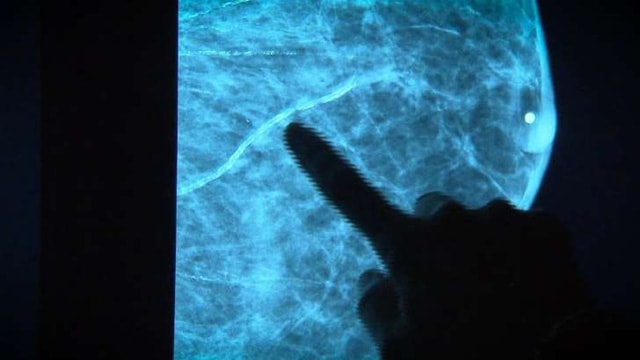72 more gene mutations that cause breast cancer discovered
Researchers from more than 300 places around the world have collaborated and discovered up to 72 previously unknown gene mutations that can cause breast cancer.
Two studies describing their work were published in the journals Nature and Nature Genetics.Two research teams have discovered 65 new genetic variants common in women with breast cancer.
The remaining seven mutations were in women with hormone receptor-negative breast cancer – which does not respond to hormonal therapies, such as the drug tamoxifen.
These new findings add to previous research, bringing the total number of breast cancer-associated variants to nearly 180.

BRCA1 and BRCA2 mutations
An international team of 550 researchers on six continents from the OncoArray Consortium, led by Professor Doug Easton from the University of Cambridge, analyzed blood samples from nearly 300,000 women, about 50% of whom had cancer, to look for genetic mutations.
To help people visualize mutations more clearly, Dr. Otis Brawley, Director of the American Cancer Society, explains: “Think of each gene as a very long strand of DNA. DNA is made up of nucleic acids, and when one nucleic acid is not in the right place in the strand, that is a genetic mutation.”
Taking the BRCA1 and BRCA2 genes, which are notorious for their risk of causing breast cancer when mutated, Brawley said there are 125,950 base pairs in the BRCA 1 gene mutation.
“Imagine a letter with 125,950 words. A mutation is a spelling error that prevents a gene from coding for the correct protein.” When a gene fails to code for the correct protein, disease results.
According to the American Cancer Institute, 55-65% of women with the BRCA1 mutation and about 45% of women with the BRCA2 mutation will develop breast cancer by age 70.
However, the risk of BRCA1 and BRCA2 mutations is only found in less than 1% of women, which only partially explains cases of hereditary breast cancer.
Find other mutations
Researchers measured DNA at more than 10 million spots in the genome.
“At every measurement point, we asked whether the DNA sequences of women with breast cancer differed from those of women without breast cancer,” said study co-author Peter Kraft, a professor at the Harvard School of Public Health. “Because the study was so large, we were able to pick up subtle differences between the two groups of women.”
According to Jacques Simard, a member of the research team and an expert and researcher at Laval University (Canada), newly discovered mutations, even very small (5-10%), increase the risk of breast cancer.
And although the mutation rate is small, unlike the mutations of BRCA1 and BRCA2, many mutations at the same time make the risk of breast cancer higher (about 3 times).
With the discovery of these genetic mutations, Kraft believes that new breast cancer screening guidelines that are more effective than mammography can be developed.
However, it should be noted that this study involved mainly women of European descent. Similar genetic studies are currently being conducted in Africa, African Americans, Chinese, etc.
Lisa Schlager, vice president of the nonprofit organization FORCE (Facing Our Risk of Cancer Empowered), said previous studies suggested that about 10 percent of breast cancer cases are hereditary. And with the new research, that estimate is likely lower.
Lisa also raised the issue of personalized treatment and whether family members have the same genetic mutation.
According to Dantri
| RELATED NEWS |
|---|
